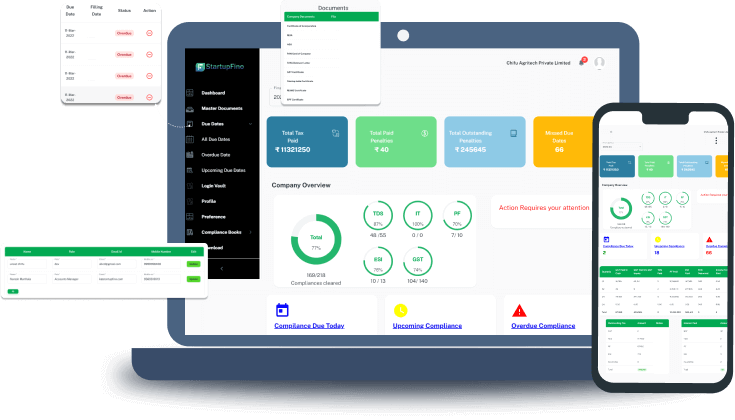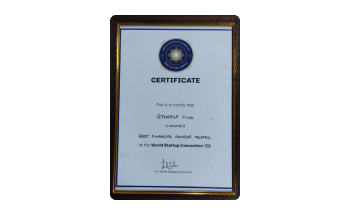Starting a business involves fulfilling various legal obligations, acquiring licences and entering into contracts. Among these essential legal documents, the Terms and Conditions Agreement (also called Terms of Use and Terms of Service agreement) holds significant importance for business owners.
The Terms and Conditions Agreement outlines the contractual terms between two parties which are the company offering the product or service and the customer who utilises it. Unlike traditional contracts that require signatures from both parties, the terms and conditions for online platforms, apps and websites often come into effect when consumers tick or click the I Accept box displayed on the screen or simply by utilising the product or service.
What are the Benefits of a Terms and Conditions Agreement?
The benefits of having a well-drafted Terms and Conditions Agreement are following:
- Clear Obligations: The agreement allows you to establish the appropriate set of obligations for both - the customers and your business.
- Transparent Payment Norms: You can outline and clarify payment terms, ensuring transparency for your customers.
- Safeguard Intellectual Property: The agreement provides a means to safeguard your intellectual property rights by specifying what users can and cannot do with your IP.
- Liability Protection: By including appropriate clauses, you can limit yourbusiness's liability and protect it from potential damages.
- Legally Required Disclosures: The agreement allows you to include any legally required disclosures, ensuring compliance with relevant laws and regulations.
- Establishes a Legal Framework: Having a Terms and Conditions agreement provides a legal framework for your business-customer relationship, setting expectations and rights for both parties.
- Minimises Misunderstandings: The agreement helps to prevent unintentional violations and misunderstandings between your business and customers by clearly stating the terms and conditions.
- Enhances Trust and Credibility: Displaying a well-crafted and comprehensive agreement instils confidence in your customers, showcasing professionalism and commitment to transparency.
- Consequences for Non-compliance: You can explain the consequences of non-compliance with the terms of the agreement, helping to maintain order and protect your business.
Why is the Terms and Conditions Agreement Important for Organisations?
A Terms and Conditions agreement is essential as it acts as a legally binding contract encompassing significant aspects such as privacy policies, data management practices and similar actions. Some of the key functions of a Terms and Conditions agreement include:
- Enforcing Policies: The agreement allows the website to enforce its policies and take necessary actions in cases of policy violations or other breaches.
- Service Withdrawal: It clarifies that the website has the authority to withdraw or cancel services to a particular user if they violate the policies or engage in prohibited activities.
- Account Disabling: The agreement outlines the conditions under which user accounts may be disabled, such as repeated offences or the detection of malicious or harmful actions.
- Managing Customer Expectations: It helps in setting clear expectations for customers regarding the functionality and outcomes of the services provided by the website.
- Defining Rules of Conduct: The agreement establishes rules for customer behaviour, prohibiting actions such as malicious activities, hateful comments, hate speech and other forms of harmful behaviour.
By having a well-crafted Terms and Conditions agreement in place, organisations can protect themselves, manage user expectations and maintain a safe and compliant business environment.
Are Terms and Conditions Agreements Legally Binding?
Yes, Terms and Conditions agreements are legally binding contracts between service providers and their clients.
A Terms and Conditions agreement's principal purpose is to guide user expectations regarding the organisation’s functionality and service availability. Most legal problems can be effectively resolved in this manner. For example, if a consumer makes a legal complaint against your service for being unavailable for an extended period of time, having a clearly stated section in your Terms and Conditions agreement that acknowledges the likelihood of service disruptions can protect you from legal consequences.
To ensure the legal enforceability of your Terms and Conditions agreement, it is important to meet specific criteria. The following aspects must be considered in this regard:
- Clarity: The agreement should be clear and easily understandable, allowing users to comprehend its purpose and terms without ambiguity or confusion.
- Fairness: It is important to avoid incorporating unfair or unreasonable demands on customers within the agreement. The terms should be reasonable and not a burden created for users.
- Legality: The agreement stands null and void if it involves any unlawful activities, highlighting the need for compliance with applicable laws and regulations.
- Mutual Agreement: The agreement's legal bindingness and enforceability solely rely on the establishment of mutual consent between both parties, emphasising the significance of their agreement.
What are the Essential Clauses that Must be Included in Your Terms and Conditions Agreement?
Clauses to Include in a well-drafted Terms and Conditions Agreement are following:
1. Scope of Services:
- Clearly state the products or services your business offers.
- Provide a brief description of your mission or purpose, similar to how popular organisations explain their services to customers.
2. Changes to the Agreement:
- Include a clause that grants you the right to update the agreement.
- Specify how customers will be notified of any updates, especially when there are changes in your business or amendments to relevant laws.
3. Prices and Payment Clause:
- Inform users about the inclusion of taxes (e.g., GST) in your prices.
- Specify the currency in which your prices are listed.
- Clarify when payment is due and the accepted payment methods.
- Outline the consequences if payment is not received.
4. Limitation of Liability Clause:
- Emphasise that your business limits the amount of damages it is responsible for.
- Communicate that your business is not liable for inaccurate or invalid information on your website or app.
5. Governing Law Clause:
- Disclose the location where your business is based.
- Indicate which nation's laws govern the agreement.
6. Acceptable Use Clause:
- Encourage users to use your app or platform lawfully.
- Clearly define what behaviour is considered inappropriate or abusive.
- Explain the consequences of breaching the terms outlined in this clause.
7. User-Generated Content:
- If your platform allows user-generated content, include a clause specifically addressing this.
- Highlight the potential risks, such as exposure to inappropriate content or copyright infringement.
- Specify what are the kinds of any such user-generated content that will be considered acceptable, like for example - content free from abusive or derogatory elements.
- State that users are responsible for the content they upload and must either own it or have proper authorisation to publish it.
8. Intellectual Property Clause:
- Inform customers about the Intellectual property rights (IPR) owned by your business.
- Outline what users can and cannot do with your IP, such as prohibiting the posting or alteration of site materials.
9. Termination Clause:
- Grant your business the right to revoke or suspend users' accounts and restrict access to your platform.
- Specify the circumstances under which termination may occur, such as inappropriate use or offensive behaviour.
10. Contact Clause:
- Provide users with information on how to communicate with your company.
- Include your email address, postal address and contact number if possible.
Basic Checklist for Terms and Conditions Agreements
A Terms and Conditions Agreement typically consists of the following sections:
1. Introduction:
- Provide a brief background of the business and explain the purpose of the website or platform.
- Clearly state the collection of user data and any specific terms and conditions related to privacy.
2. Information Gathering:
- Inform users about the type of data that will be collected by the website.
- Specify the specific information that is collected, such as server identification, hostname, IP address, tracking data and storage information.
3. Methods of Information Gathering:
- Explain the methods employed to collect user data, whether it is done manually or automatically.
- Describe the data processing techniques and the categorisation of forms used for data collection.
4. Storage of Data:
- Detail the procedures and measures employed for storing the collected user
- If the data is stored in an offshore location, explain the steps taken to comply with the privacy laws of that particular country.
- If the server is located in India, address the necessity of permission to transmit data outside the country.
5. Contact Details of Business:
- Provide contact information for users to reach out to the business in case of any issues or queries.
- Include both an email address and a physical office address for communication purposes.
- Ensure the contact details are regularly updated and respond to user queries in a timely manner.
6. Information Related to Services of the Business:
- Explain the significant information collected from customers during online purchases or transactions.
- Address the collection of user data through mobile apps, online stores or payment platforms like PayPal.
- Communicate any requirements for licensing, versioning or sales history information to be sent to centralised servers.
7. Handling of Employee Details:
- Address the handling of employee information, including data related to health, finance, employment and personal details.
- Emphasise the importance of safeguarding employee data from unauthorised access or theft.
8. Financial Activities of the Business:
- Highlight the importance of maintaining strict security measures for transactions and payments.
- Stress the need for secure storage of financial information to protect user data from unauthorised access or breaches.
What is the Procedure for Creating a Terms and Conditions Agreement?
The detailed steps to consider for drafting a Terms of service/ Terms and conditions agreement are:
1. Acceptance of Terms:
- Clearly state that the user must accept the terms of the Service Agreement to access and utilise the company's services.
- Make it explicit that by using the platform or app, the user agrees to be bound by the terms and conditions outlined in the agreement.
2. Description of the Platform or App:
- Provide a comprehensive description of the website or application that the user will be using.
- Specify the features, functionalities and purpose of the platform or app.
3. Goods or Services Offered:
- Clearly state the goods or services that your business offers through the platform or app.
- Provide a detailed explanation of what users can expect to receive or access.
4. Policies and Procedures:
- Describe the policies and procedures that users must follow when using the goods or services provided.
- Outline any specific rules, guidelines or requirements that users need to adhere to.
5. User Agreement Confirmation:
- Include a statement or checkbox where users can confirm their agreement to abide by the terms of service.
- This ensures that users acknowledge and accept the terms before proceeding to use the platform or app.
6. Need for a Terms of Service Agreement:
- Clearly communicate when the terms of the service agreement come into effect.
- Specify the circumstances under which users are bound by the agreement, such as upon registration, account creation or first use of the platform or app.
7. Liability Restrictions and Disclaimers:
- Include clauses that limit your business's liability and provide disclaimers for any warranties or guarantees.
- Clearly outline the scope and limitations of your company's responsibility for any damages or losses incurred by users.
8. Intellectual Property and Content Ownership:
- Identify and name the owners of the intellectual property and content featured on the platform or app.
- Specify the rights and restrictions users have in relation to the content, trademarks, logos or any other intellectual property.
9. Privacy Policies:
- Provide detailed information about your company's privacy policies and data handling practices.
- Explain how user information is collected, stored, used and protected.
10. Consequences of Noncompliance:
- Clearly state the consequences or repercussions for users who fail to comply with the terms of service.
- Outline any actions that may be taken, such as account suspension, termination or legal measures.
What are the Services Offered by Startupfino for Terms of Use Agreements?
Customers who sign Terms and Conditions agreements understand what is expected of them and what they can expect from a company. It establishes a contract between your company and the customers, which is also legally binding.
The agreement should ideally include paragraphs about the scope of your firm's services, payment terms, liability limits, intellectual property, account termination, user material, appropriate use and how to contact your organisation.
It is advisable to publish your Terms and Conditions agreement in multiple locations to guarantee that end consumers can access them.
Startupfino is a company that specialises in offering complete services for Terms of use agreements. We can aid with everything from providing advice in the beginning phase to ensuring that you meet all the necessary requirements and also keeping your organisation in good legal standing.
Our services include the below mentioned:
- Drafting customised and comprehensive Terms of Use agreements tailored to the specific needs and requirements of businesses operating in India.
- Providing legal guidance on consumer rights, dispute resolution mechanisms and limitation of liability provisions.
- Compliance with laws when structuring and implementing agreement.
- Incorporating clauses for data privacy, protection of user information.
- Intellectual Property protection clauses to protect proprietary content.
- Regular review and updates for Terms of Use agreements.
By availing our services, entrepreneurs can avoid the negative outcomes of non-followance of rules and compliances. StartupFino works hard to provide services that are prompt and effective, so you can manage your business without any issues and without facing penalties or problems.































































